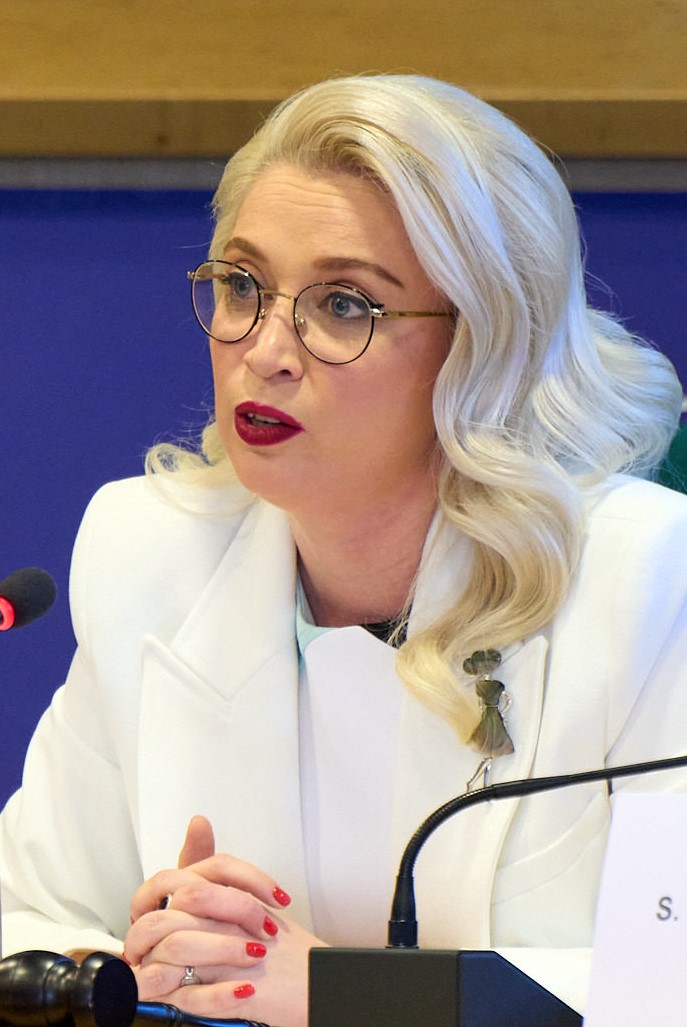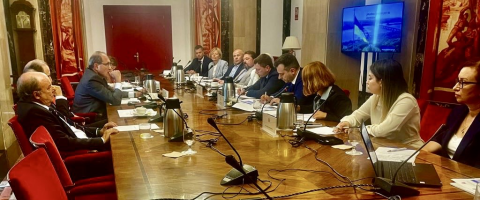
International IDEA assists Ukraine and Spain in establishing out-of-country voting cooperation for post-war Ukrainian elections
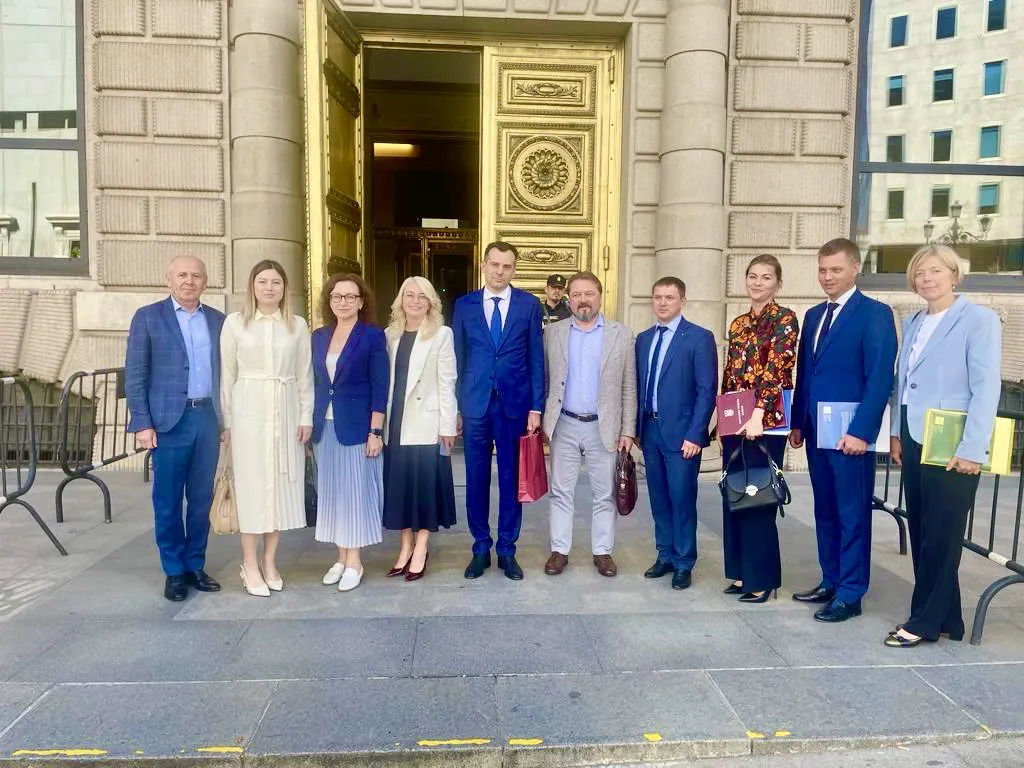
Organising the first post-war elections will pose unprecedented challenges for Ukraine, as a significant part of the electoral infrastructure has been damaged, and millions of voters are now displaced within or outside the country.
Following the recommendations of the Parliamentary Electoral Dialogue hosted in Brussels in May 2023 by International IDEA and the European Parliament, Ukrainian authorities continue to explore host-country conditions for organizing out-of-country voting (OCV) for Ukraine’s post-war elections. In this work, special consideration is given to the countries with large numbers of Ukrainian refugees and potential voters. Spain, with around 190 000 registered Ukrainians, is in the top five countries in Europe by refugee population size and was therefore chosen as a destination for the first consultative OCV site visit.
During October 10-11, 2023, International IDEA facilitated the visit of the Central Electoral Commission of Ukraine, the Ministry of Foreign Affairs and Ukrainian diplomatic missions in Spain to Madrid. The Ukrainian delegation met with their counterparts in the Central Electoral Board of Spain, Ministry of Interior, Ministry of Foreign Affairs, EU and Cooperation of Spain, and Ministry of Economy and Digital Transformation to discuss the Spanish experience in organizing out-of-country voting for Spaniards abroad and options for Ukraine.
In a discussion with the Central Electoral Board of Spain, the two sides reviewed the obstacles and possible solutions for holding post-war elections in Ukraine, emphasizing OCV concerns. The Spanish Central Electoral Board provided its knowledge in registering Spanish voters overseas, organizing postal voting, conducting voter education campaigns, and establishing election results. Furthermore, the Spanish electoral management authority shared its experience in assisting other countries, mostly Latin American countries, in conducting OCV in Spain, which may serve as a foundation for assisting Ukrainian OCV operations.

Seeking to deepen cooperation in the field of administration of elections and aspiring to further develop it, the Central Electoral Commission of Ukraine and the Central Electoral Board of Spain signed a Memorandum of Understanding.

The Chairman of the Central Electoral Board of Spain, Miguel Colmenero Menendez de Luarca, emphasized the full support to Ukraine in this extremely difficult time for the country. "From all of us, I wish that the war ends as soon as possible and ends as it should be - the victory of Ukraine. And you would return to the development of a democratic state," stated the Chairman of the Central Electoral Board of Spain.
“The signing of the Memorandum is also a symbolic event. This is an important signal not only to the Commission, but also to the entire Ukrainian society that our struggle is not in vain, that our place is in Europe, that we are moving in the right direction, that we are supported and expected here. At the same time, this is a reminder that if we aspire to join the European family, we must meet all criteria and standards, in particular, in the field of elections," emphasized the Chairman of the Central Electoral Commission of Ukraine Oleh Didenko.
The Ukrainian delegation also met the Ministry of Interior, the Ministry of Foreign Affairs, EU and Cooperation of Spain, and the Ministry of Economy and Digital Transformation of Spain. During the meetings, the Spanish authorities presented the practical aspects of maintaining a register of absentee Spanish voters, the organization of OCV and postal voting, and electronic systems used for voter identification and results tabulation.
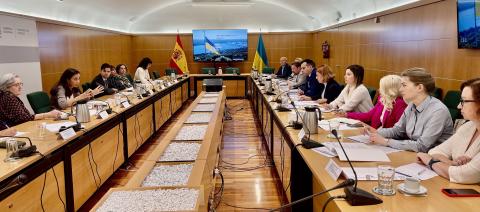
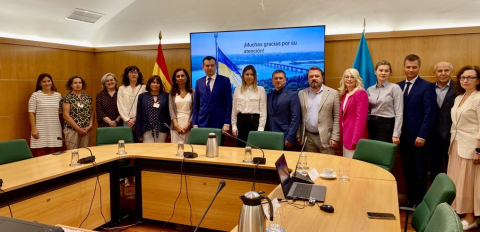
Importantly, parties examined the potential help that Spain may provide for organizing OCV during Ukraine's post-war elections, aspects related to the processes for negotiating host-country agreements, legal considerations, logistics, voter education, and communication. The parties will continue the cooperation on these issues online and through Ukrainian diplomatic missions in Spain.
As one of the visit’s key objectives, the Ukrainian delegation engaged with Ukrainian activists from across Spain. Ukrainian community leaders, representing 46 associations encompassing the whole territory of Spain, attended the gathering. During the meeting, Ukrainian authorities consulted community leaders on the model for organizing OCV in Spain, focusing on voter registration, voting methods, forming precinct election commissions and training election officials, conducting voter education campaigns, and establishing election results.

The Ukrainian community representatives shared their willingness to support the organization of OCV for post-war Ukrainian elections. They expressed confidence that Ukraine will provide appropriate opportunities to its citizens for participation in the decision-making process, which will determine the country's future.
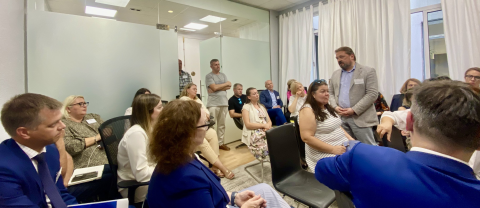
International IDEA will continue to support Ukrainian authorities, including the Parliament of Ukraine, the Central Election Commission and the Ministry of Foreign Affairs, and other state and civil society actors in determining the optimal model for OCV for post-war elections in Ukraine. A report and recommendations of the Parliamentary Electoral Dialogue can be accessed here.
